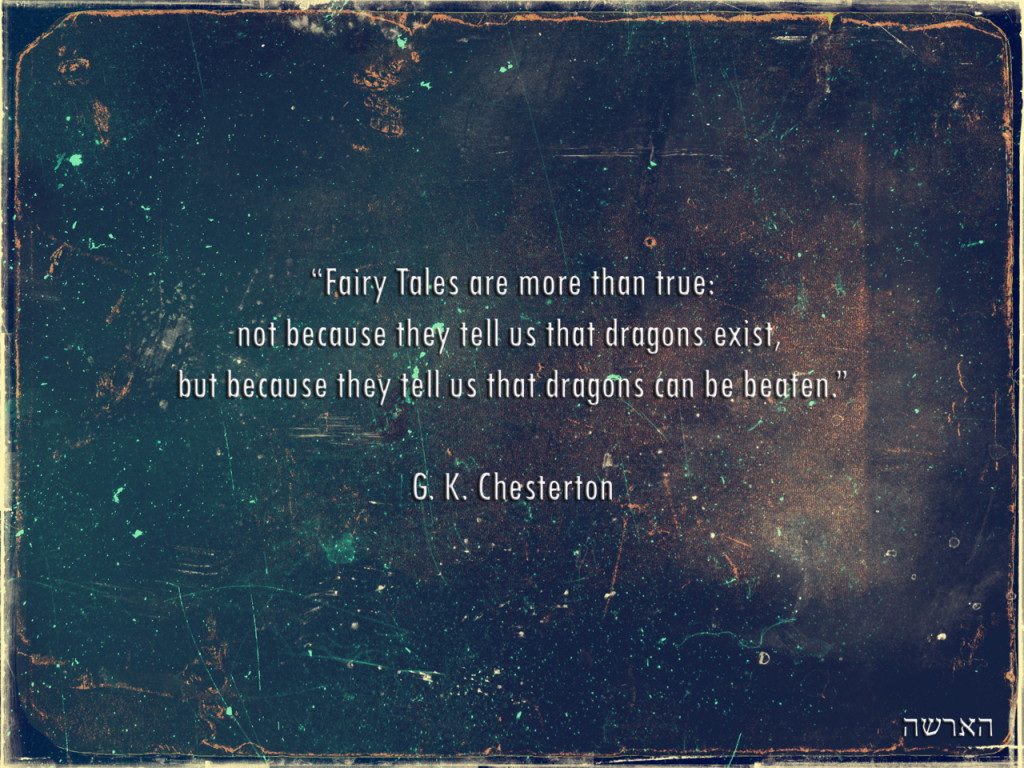Last updated on May 2, 2013

Read Psalm 127 for me, won’t you?
Unless the Lord builds the house,
They labor in vain who build it;
Unless the Lord guards the city,
The watchman keeps awake in vain.
2 It is vain for you to rise up early,
To retire late,
To eat the bread of painful labors;
For He gives to His beloved even in his sleep.
3 Behold, children are a gift of the Lord,
The fruit of the womb is a reward.
4 Like arrows in the hand of a warrior,
So are the children of one’s youth.
5 How blessed is the man whose quiver is full of them;
They will not be ashamed
When they speak with their enemies in the gate
I was trying to understand what this meant. Why in the heck are children used as a bizarre metaphor for defending the gates of a city? And it occurred to me that, maybe we’re really talking about the joys of having a child around the house. Sure, in a way one’s progeny represent a continuation of your legacy, a blessing in their way. But that blessing involves trials and tribulations of its own, namely raising a family. Yet I would guess any parent that knows that their children are leaving the household in the near future know that, even with all those difficulties suddenly leaving their house, there’s sadness in a quiet house. Kids make you do the same thing over and over again because each and every instance of that same thing brings the same sense of wonder and enjoyment to them.
This is how I feel about video games. There’s something wonderful and innocent about playing games for a single defined purpose. To do the same thing over and over again. To not desire new things over and over again, as I suppose a materialist culture naturally promotes, and to just enjoy that one thing. I think I’ve already quoted Chesterton far too much on this, but whatever:
Because children have abounding vitality, because they are in spirit fierce and free, therefore they want things repeated and unchanged. They always say, “Do it again”; and the grown-up person does it again until he is nearly dead. For grown-up people are not strong enough to exult in monotony. But perhaps God is strong enough to exult in monotony. It is possible that God says every morning, “Do it again” to the sun; and every evening, “Do it again” to the moon. It may not be automatic necessity that makes all daisies alike; it may be that God makes every daisy separately, but has never got tired of making them. It may be that He has the eternal appetite of infancy; for we have sinned and grown old, and our Father is younger than we.
And I am one of those people that indulges in monotony on a daily basis, whether in playing World of WarCraft or trying to master Metal Gear Rising: Revengeance by playing the same segment over and over wherein I can improvise within the constraints the game sets. Those are the games I look forward to and I want to play, the games that keep revealing cool and awesome things EVEN when I’m playing the exact same segment again. It never gets old. Everything PlatinumGames ever made goes to that impulse. Even God Hand works that way (for the record, it’s hilariously absurd, but even the stupid surf rock makes me giddy). When it comes to experiential games, I just don’t see that same joy. I see a striving after the fleeting idea of “meaning” and “purpose”, as if a Christian really NEEDS those things somehow in their narratives that Scripture wouldn’t provide. Am I missing something that sub-creations can take the place of the main thing, or do I just not get it?
Those games don’t fill me with that sense of wonder. They put the experiential hedges around me, and I have to stay inside and foster some suspension of disbelief to get anything out of it. It just isn’t natural to me at all. It makes it into an “adult” experience, and hones me into an particular modern ideology that I just don’t care for, and I probably never will. They don’t tell me that I can rise to any occasion and meet any challenge; they bring me to the ground floor and force me into a particular mood or feeling.
I want to see new wonders, I want to learn new things, and I want to see every day as new, because everything IS new every day. Our culture doesn’t value children at all; it takes away their uniqueness. It makes them into adults earlier and earlier, trying to bash out the innocence before they can escape into the world. So too do our video games, that last vestige of dumb stupidity, weird abstractions, and quirky experiments that you wouldn’t see in any other medium. We are trying to snuff them out, and we’ll be the worst off for it. And we all wonder why Christ loved children so much, and there it is. Yet again, more Chesterton:
The exaltation of childhood is something which we do really understand; but it was by no means a thing that was then [during Christ’s time] in that sense understood. If we wanted an example of the originality of the Gospel, we could hardly take a stronger or more startling one. Nearly two thousand years afterwards we happen to find ourselves in a mood that does really feel the mystical charm of the child (Editors’ note: this was written in the early 20th century, so take that as you will); we express it in romances and regrets about childhood, in Peter Pan or The Child’s Garden of Verses. And we can say of the words of Christ with so angry an anti-Christian as Swinburne:–
‘No sign that ever was given
To faithful or faithless eyes
Showed ever beyond clouds riven
So clear a paradise.
Earth’s creeds may be seventy times seven
And blood have defiled each creed
But if such be the kingdom of heaven
It must be heaven indeed.’But that paradise was not clear until Christianity had gradually cleared it. The pagan world, as such, would not have understood any such thing as a serious suggestion that a child is higher or holier than a man. It would have seemed like the suggestion that a tadpole is higher or holier than a frog. To the merely rationalistic mind, it would sound like saying that a bud must be more beautiful than a flower or that an unripe apple must be better than a ripe one. In other words, this modern feeling is an entirely mystical feeling. It is quite as mystical as the cult of virginity; in fact it is the cult of virginity. But pagan antiquity had much more idea of the holiness of the virgin than of the holiness of the child. For various reasons we have come nowadays to venerate children; perhaps partly because we envy children for still doing what men used to do; such as play simple games and enjoy fairy-tales. Over and above this, however, there is a great deal of real and subtle psychology in our appreciation of childhood; but if we turn it into a modern discovery, we must once more admit that the historical Jesus of Nazareth had already covered it two thousand years too soon. There was certainly nothing in the world around him to help him to the discovery. Here Christ was indeed human; but more human that a human being was then likely to be. Peter Pan does not belong to the world of Pan but the world of Peter.
That is the world and the narrative I am completely done with; the ambiguity, the vacillations, the indecisiveness. Who doesn’t want to experience the right kind of wonder, not the vapid and empty kind that we see in most of our media today? Do I have the truth or not? I’m not saying it isn’t complicated, but we must believe that we have the answer to life’s problems (if not the end as such – then you’d be looking at it wrong) As a disciple, I just can’t see how it’s consistent to think in that way about video games.

